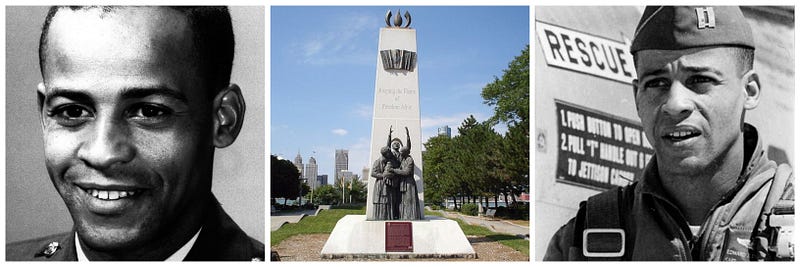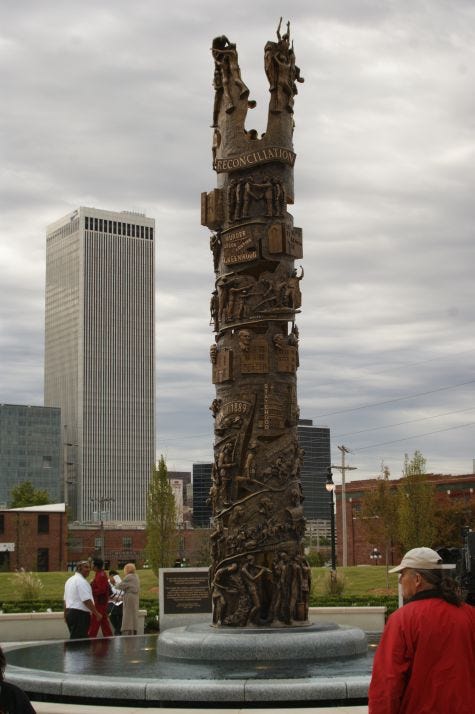Ed Dwight: The Near Miss of America’s First Black Astronaut
Written on
Chapter 1: A Trailblazing Dream
Ed Dwight, who came close to being recognized as the first African-American to venture into space, remains a significant source of inspiration for many across America. Despite not being a widely known figure among space enthusiasts, his story is compelling and deserving of recognition alongside icons like John Glenn and Yuri Gagarin.
Born in 1933 in Kansas City, Kansas, Dwight was influenced by his father, Ed Dwight, Sr., a second baseman for the Kansas City Monarchs in the Negro League. His mother, Georgia Baker Dwight, nurtured his curiosity and creativity, leading him to develop a passion for reading and art—interests that would resurface in his later life.

Ed Dwight served as a pilot in the U.S. Air Force, where he fulfilled his aspiration of flying jet aircraft, starting his journey in 1953. By 1961, he had earned a degree in aeronautical engineering from Arizona State University, and was undergoing training to become an astronaut after completing an experimental test pilot course.
In 1961, President Kennedy chose Dwight for astronaut training, aiming to make him the first African-American in space. Suddenly, he found himself in the spotlight, featured on magazine covers and news articles as the U.S. sought to regain momentum in the space race against the Soviet Union.
Charles Bolden, the first African-American NASA administrator, noted, “To see an Ed Dwight walking across the platform getting into an Apollo capsule would have been mind-boggling in those days. It would’ve had an incredible impact.”
In 1962, Dwight pushed his F-104 Starfighter to an altitude of 80,000 feet, experiencing the breathtaking view of Earth's curvature—this would be as close as he would come to space. However, he faced considerable discrimination from fellow astronauts, which became exacerbated following President Kennedy's assassination, ultimately leading to his resignation in 1966 without ever launching into space.
“Space travel benefits us here on Earth. And we ain’t stopped yet. There’s more exploration to come,” stated Nichelle Nichols, famous for her role as Nyota Uhura in Star Trek.
Much like Jerri Cobb and the women of Mercury 13, the ambition to see an African-American in space was overshadowed by the focus on landing on the Moon and subsequent budget cuts. It wasn't until August 30, 1983, that Guion Bluford became the first African-American to reach space aboard the space shuttle Challenger, logging a total of 688 hours across four missions.
Chapter 2: Sculpting a Legacy
In 1966, Dwight transitioned to a career with IBM as a marketing representative and systems engineer. He later ventured into aviation consulting and executive air charter services, eventually establishing a restaurant chain and engaging in real estate in Denver.

In the mid-1970s, Dwight returned to his artistic roots by enrolling at the University of Denver. There, he honed his skills in metal casting, ultimately earning a Masters of Fine Arts in 1977. He developed a reputation as a skilled sculptor, creating pieces that celebrate African-American contributions to culture and history, including a series titled "Evolution of Jazz," featuring legends like Ella Fitzgerald and Benny Goodman.
While he may not have physically entered space, Ed Dwight's pioneering spirit helped pave the way for greater inclusion within America’s astronaut program.
Bolden remarked in 2009, “While not actually becoming an astronaut, he was a trailblazer in the attempt to break the color barrier in America’s astronaut program.”
Though not a household name today, Dwight's contributions to art and society reflect his significant journey toward promoting inclusion and acceptance.
The first video, "I Was Poised to be the First Black Astronaut. I Never Made it to Space," provides insights into Ed Dwight's journey and the challenges he faced.
The second video, "America's first Black astronaut candidate reaches space," highlights the historic moment when Guion Bluford made his mark in space exploration.
James Maynard is the founder and publisher of The Cosmic Companion, residing in Tucson with his wife, Nicole, and their cat, Max.